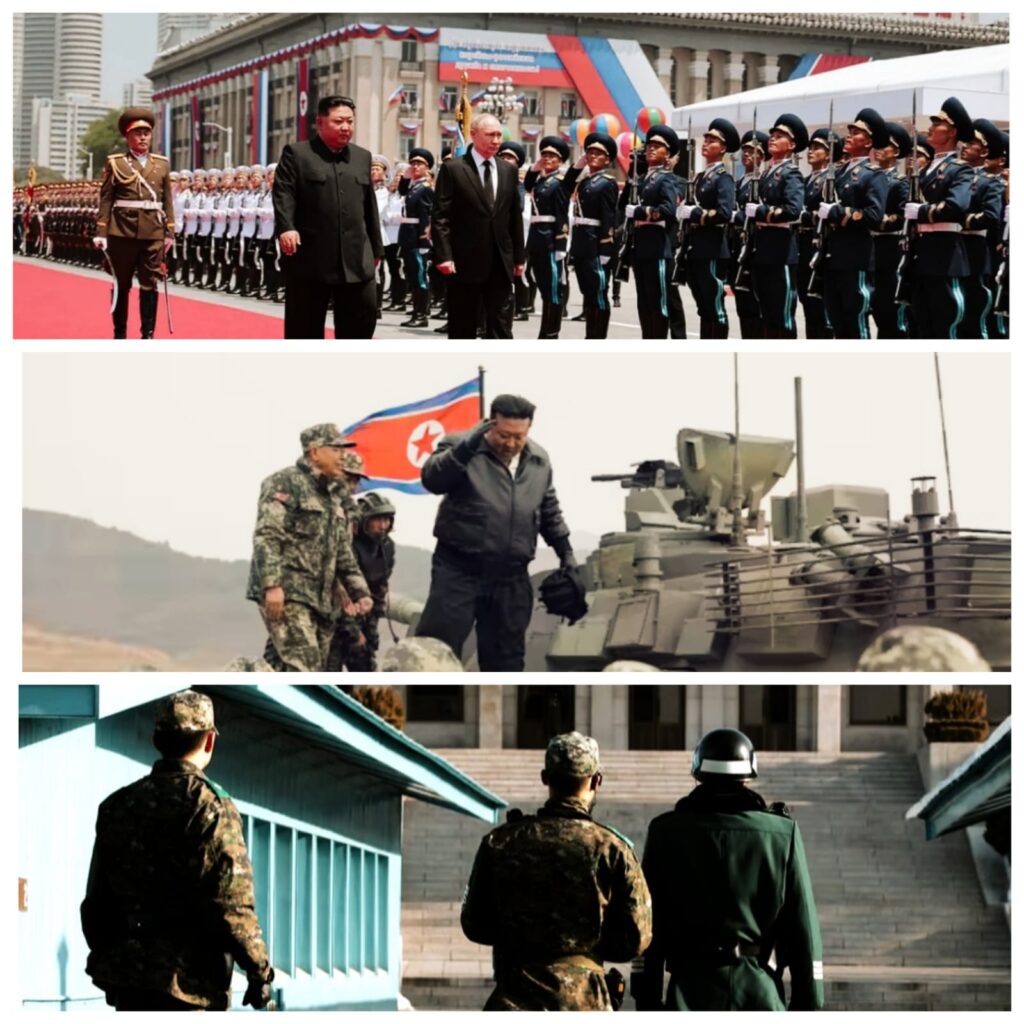
The geopolitical landscape is shifting once again as satellite imagery, reportedly released by South Korea’s National Intelligence Service, suggests that North Korean (DPRK) troops have been deployed to Russia. The images indicate the presence of DPRK soldiers at training grounds near Vladivostok and Khabarovsk, with an additional contingent allegedly stationed in Blagoveshchensk. If true, this move draws a striking parallel with the 1971 India-Pakistan war, where strategic alliances played a pivotal role.
North Korean Troops in Russia: A Strategic Move Echoing the 1971 India-Pakistan War? This question underscores the broader implications of such military collaboration. The deployment of DPRK troops to Russia could significantly alter the balance of power, as historical precedents suggest. Just as the Soviet Union’s friendship treaty with India in 1971 deterred Chinese or US intervention during the Bangladesh Liberation War, Russia’s partnership with North Korea today may be a strategic effort to deter NATO intervention in the ongoing Ukraine conflict.
According to the report, around 1,500 North Korean special forces have already been transported to Russia, with potential plans for more to follow. The total number of DPRK soldiers being prepped for deployment is speculated to reach 12,000. Such figures, if accurate, signal a deepening of Russia-North Korea ties, which adds another layer of complexity to the global geopolitical theatre. North Korean Troops in Russia: A Strategic Move Echoing the 1971 India-Pakistan War? raises important questions about how this partnership could influence the trajectory of the war in Ukraine.
A key point of concern revolves around how Russia will utilise these troops. It is widely believed that DPRK soldiers are undergoing intense training in Russia, likely to avoid the immediate need to deploy them to the battlefront. This strategic patience reflects Russia’s current approach to its “Special Military Operation” in Ukraine, where it has refrained from using its full military might. Instead, Russia appears to be keeping its options open, using minimal force to maintain readiness against NATO intervention. North Korean Troops in Russia: A Strategic Move Echoing the 1971 India-Pakistan War? suggests that the presence of DPRK forces could enable Russia to reserve its combat troops, thereby preserving its military capabilities for larger conflicts, if necessary.
The parallels between the current Russia-DPRK partnership and the 1971 India-Soviet Union alliance are striking. Both partnerships are formed with an eye on preventing foreign intervention in critical regional conflicts. In 1971, the Indo-Soviet treaty was instrumental in deterring both China and the US from stepping into the Bangladesh war. Similarly, North Korean Troops in Russia: A Strategic Move Echoing the 1971 India-Pakistan War? highlights the likelihood that Russia’s cooperation with North Korea is designed to keep NATO from escalating the conflict in Ukraine.
In conclusion, the presence of North Korean Troops in Russia: A Strategic Move Echoing the 1971 India-Pakistan War? raises profound questions about the future of international relations. While it may not yet be an immediate cause for escalation, the long-term implications of this partnership cannot be ignored. Just as in 1971, strategic alliances are shaping the course of global conflicts today. Whether or not this move will deter NATO intervention remains to be seen, but it is clear that Russia’s partnership with North Korea is reshaping the dynamics of the Ukraine war.
